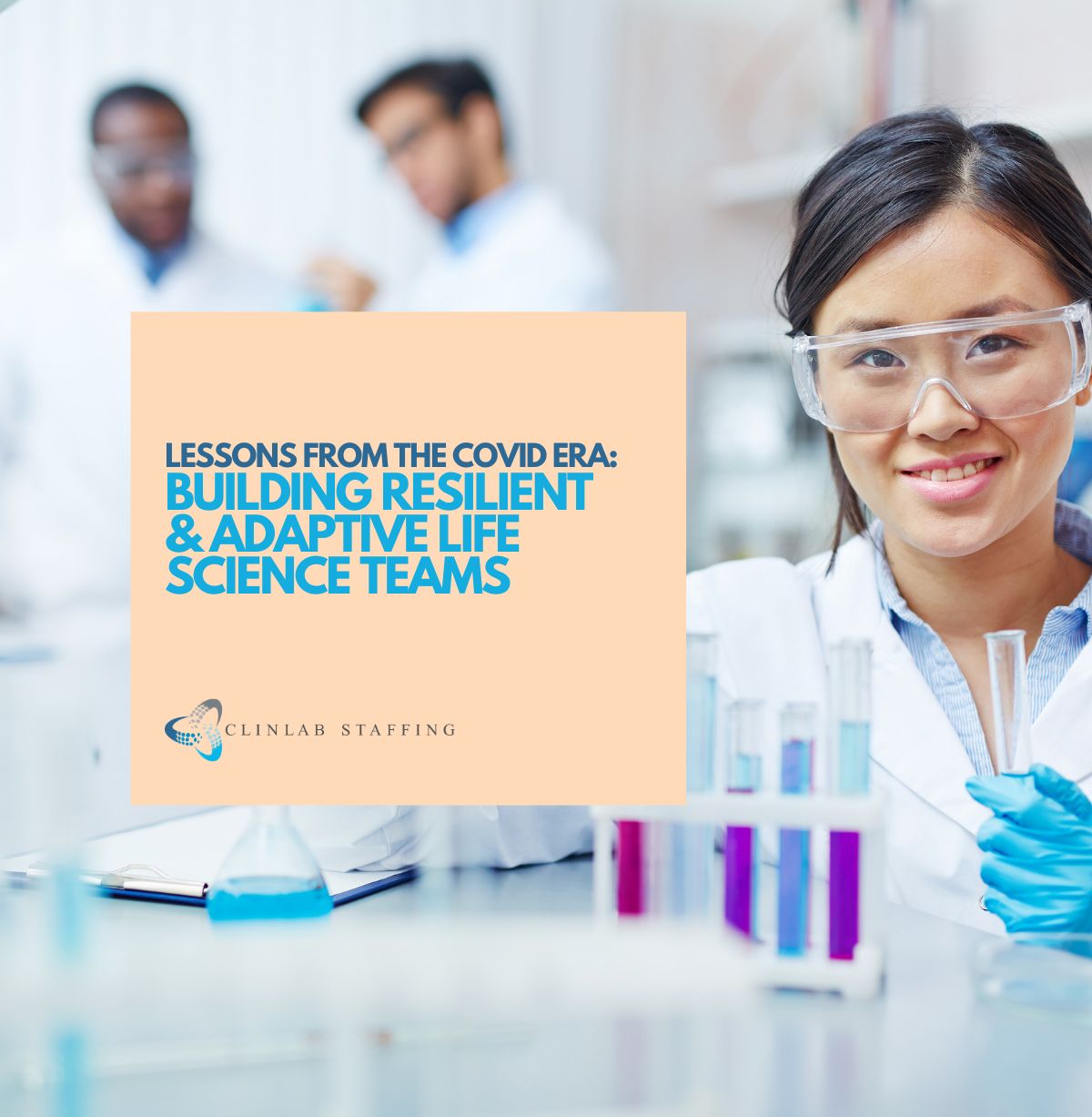 What began as crisis management has become a roadmap for building stronger, more resilient, and more agile teams. The COVID-19 pandemic pushed the life sciences industry to its limits, demanding rapid innovation, organizational flexibility, and decisive leadership. In the face of unprecedented disruption, companies had to rethink how they hired, managed, and supported their teams—often overnight.
What began as crisis management has become a roadmap for building stronger, more resilient, and more agile teams. The COVID-19 pandemic pushed the life sciences industry to its limits, demanding rapid innovation, organizational flexibility, and decisive leadership. In the face of unprecedented disruption, companies had to rethink how they hired, managed, and supported their teams—often overnight.
At ClinLab Staffing, we watched life science organizations rise to the occasion, adjusting workflows, adopting new technologies, and embracing alternative staffing strategies. Many of those changes weren’t just temporary—they’ve since become best practices that continue to shape the way we build teams today.
Here are five powerful takeaways from the pandemic that continue to influence how we approach staffing in the life sciences today:
1. Flexibility in Hiring Models is Essential
When uncertainty ruled the day, flexible hiring models became a lifeline. Temporary, contract-based, and project-based staffing surged as companies responded to shifting priorities, supply chain challenges, and urgent research demands.
The takeaway? Workforce flexibility isn’t just a contingency plan—it’s a competitive advantage. Today’s organizations benefit from scalable staffing strategies that allow them to ramp up or down quickly without sacrificing productivity or overextending budgets.
2. Remote Work is a Flex
What started as an emergency measure has become a standard part of the life sciences workplace. Remote and hybrid roles proved highly effective—particularly in areas like regulatory affairs, medical writing, clinical operations, and project management.
Remote work does more than support productivity. It expands your talent pool, enhances work-life balance, and helps attract top candidates who value flexibility. For hiring managers, it’s time to think beyond zip codes when building the best possible team.
3. Communication Skills Are a Must-Have
When teams are distributed, the ability to communicate clearly becomes mission-critical. The pandemic emphasized that even the most technically skilled employees need to be strong collaborators.
Today, communication is no longer a “soft” skill—it’s a core hiring requirement. Whether onboarding remotely, coordinating across time zones, or navigating complex clinical environments, teams that communicate well perform better and move faster.
4. Resilience is a Core Competency
If the pandemic taught us anything, it’s that resilience matters. Life science professionals faced trial delays, regulatory changes, and operational disruptions. Those who adapted quickly and maintained focus became invaluable assets.
Moving forward, resilience, adaptability, and creative problem-solving should be part of every hiring conversation. These qualities help teams stay steady in the face of challenges—and agile enough to seize new opportunities.
5. Technology is a Talent Enabler
COVID accelerated the digital transformation of hiring. Virtual interviews, online candidate screening, digital onboarding, and cloud-based project collaboration are now standard practice.
Organizations that embrace these tools benefit from faster, smarter hiring processes and an improved candidate experience. Technology not only improves efficiency—it makes it easier to find the right fit, wherever they are.
Final Thoughts: Planning for the Future Starts Now
The hiring and workforce strategies forged during COVID-19 are not just lessons from the past—they’re building blocks for the future. By integrating flexibility, communication, resilience, and tech-forward practices, life sciences organizations can build teams that are not only prepared for disruption, but primed for innovation.
At ClinLab Staffing, we’re committed to helping our partners navigate this evolving landscape. Whether you’re scaling up for a trial, filling key roles, or rethinking your workforce strategy, we’re here to guide you with insight, agility, and industry expertise.
Let’s build stronger, smarter life science teams—together.